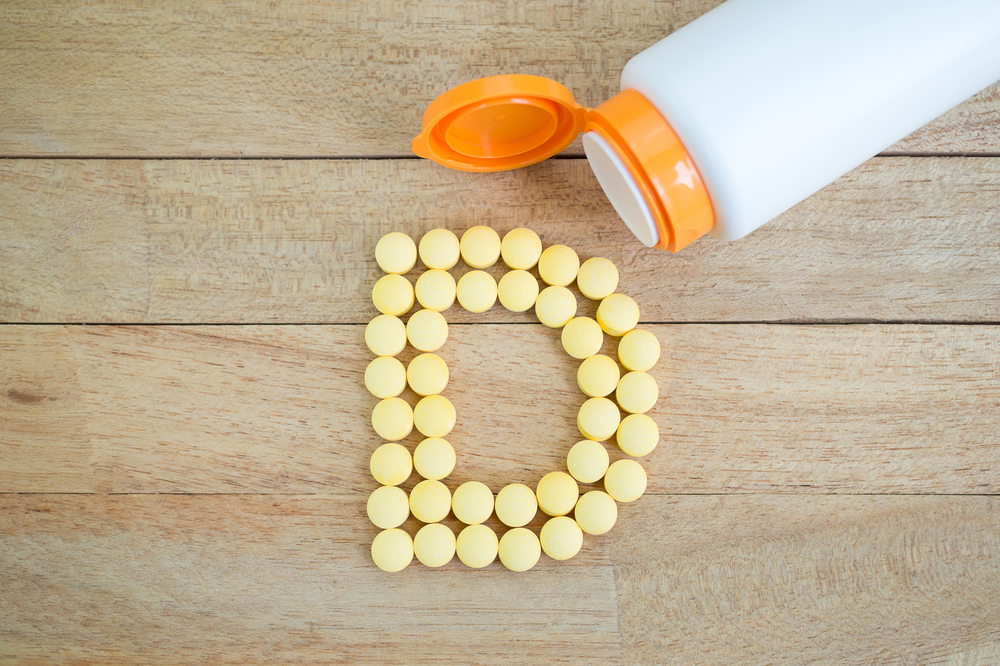The Comprehensive Guide to Incorporating Vitamin D Supplements for Optimal Bone and Immune Health
This comprehensive guide emphasizes the importance of vitamin D for bone health and immunity, highlighting dietary sources, lifestyle factors, and effective supplementation options. Learn how to maintain optimal vitamin D levels through a combination of diet, sunlight, and supplements tailored to your needs, supported by professional advice for long-term wellness.

The Essential Guide to Including Vitamin D Supplements in Your Daily Routine
Vitamins play an indispensable role in maintaining overall health and ensuring our bodies function optimally. Despite their importance, many individuals fail to consume adequate amounts necessary for optimal well-being, often leading to nutritional deficiencies over time. Among these vital nutrients, vitamin D stands out due to its critical influence on bone health, immune function, and metabolic processes. Yet, it is frequently overlooked or misunderstood, making it essential to understand the importance of vitamin D and how supplements can help bridge dietary gaps.
Vitamin D is a fat-soluble vitamin that is naturally present in a limited number of foods. Its primary role involves aiding calcium and phosphorus absorption in the gut, which is fundamental for maintaining strong and healthy bones. Without sufficient vitamin D, the risk of developing conditions like osteoporosis, rickets in children, and osteomalacia in adults increases significantly. Therefore, maintaining adequate vitamin D levels is crucial, especially as we age or when living in regions with limited sunlight exposure.
Despite its importance, many people do not get enough vitamin D from their diet or sun exposure alone. Modern lifestyles, characterized by indoor work environments, extensive use of sunscreen, and urban living, have significantly reduced natural sunlight exposure — the primary natural source of vitamin D synthesis in the skin. This deficiency can go unnoticed for years because symptoms may not be immediately apparent, but the long-term health consequences can be severe. Consequently, taking vitamin D supplements has become an essential strategy for maintaining overall health, particularly in vulnerable populations or those with limited sun exposure.
Vitamin D supplements are available in various forms, including capsules, tablets, soft gels, liquids, and chewables, making it convenient to incorporate into daily routines. These supplements help ensure that individuals meet their daily recommended intake, especially when dietary sources are insufficient. It’s important to note that vitamin D comes in two main forms: vitamin D2 (ergocalciferol) and vitamin D3 (cholecalciferol). Among these, D3 is more effective at raising blood levels of vitamin D and is the preferred choice recommended by healthcare professionals.
Natural sources of vitamin D include fatty fish such as salmon, mackerel, and sardines, as well as fish oils like cod liver oil. Mushrooms, especially those exposed to sunlight, and fortified foods like milk, orange juice, and cereals also provide some vitamin D. However, due to dietary limitations and lifestyle factors, many individuals find it necessary to supplement their intake with vitamin D capsules or liquids.
To combat widespread deficiency, several nations have implemented food fortification programs, enriching products like milk, dairy alternatives, and cereal grains with vitamin D. Nonetheless, supplementation remains a practical and reliable method for many to achieve optimal vitamin D levels. When choosing a supplement, factors such as dosage, form, and quality should be considered. For example, some individuals may require higher doses due to medical conditions, age, or specific health goals, but such decisions should always be guided by a healthcare professional.
Popular and trusted vitamin D supplement options include:
Nature’s True Medicine: Offering soft gels containing 2000 IU of vitamin D3, these supplements help reduce fatigue and support bone strength.
Trace Minerals: A cherry-flavored liquid providing 5000 IU per serving, suitable for those who prefer liquid supplements.
Nature Made: Available as gummies, soft gels, and tablets, with doses ranging from 1000 IU to 10,000 IU to meet different needs.
Natrol Fast Dissolve: Strawberry-flavored, fast-dissolving tablets providing 2000 IU to support immune health and overall vitality.
MRM Vegan: Plant-based, soy-free options delivering 2500 IU of vitamin D3, ideal for vegetarians and vegans.
Now D3: Chewables and liquid formats with 400 IU per dose, suitable for children and adults.
New Chapter Bone Strength Take Care: Incorporates vitamin K2 alongside vitamin D to enhance calcium absorption and optimize bone health.
Carlson Labs: Softgels available from 400 IU up to 10,000 IU, supported by their reputation for high-quality supplements aimed at bone and mineral health.
Optimum Nutrition: Delivers 5000 IU, targeting athletes and active individuals who require higher vitamin D levels for performance and recovery.
Thorne Research: Typically containing around 1300 IU, designed for muscle maintenance, immune support, and overall wellness.
For best results, vitamin D supplements should be taken with meals containing some fat, as fat enhances absorption. Individuals on medications such as corticosteroids or those with certain medical conditions should consult healthcare providers prior to starting supplementation, to avoid potential interactions. Combining vitamin D with calcium is often recommended, especially for women and older adults, to support bone mineral density.
Achieving and maintaining adequate vitamin D levels requires a multifaceted approach: a balanced diet rich in essential nutrients, safe sun exposure, and appropriate supplementation. Regular medical check-ups, including blood tests, can help monitor vitamin D status and adjust intake accordingly. Always seek professional medical advice before starting any new supplement regimen, as improperly dosed vitamin D can lead to toxicity and health complications.
In conclusion, vitamin D is a cornerstone of health, influencing bone strength, immunity, and overall well-being. Utilizing supplements effectively, combined with dietary and lifestyle measures, can help address deficiencies and promote a healthier, more resilient body. Stay informed, consult healthcare professionals, and adopt habits that support optimal vitamin D levels for a healthier life.





